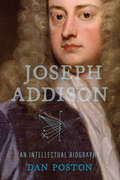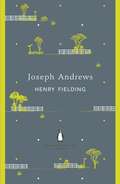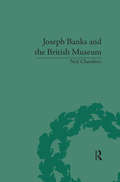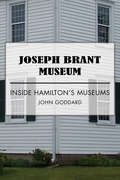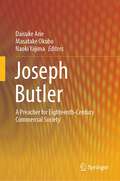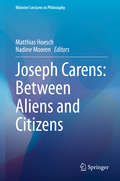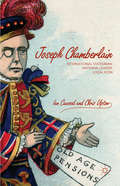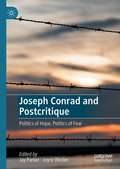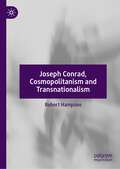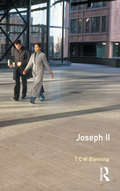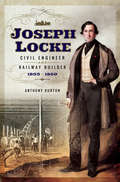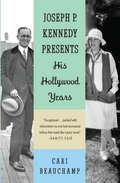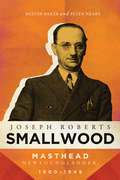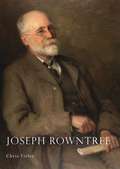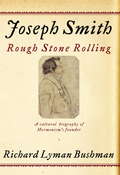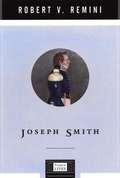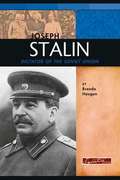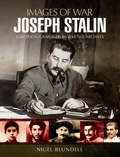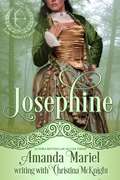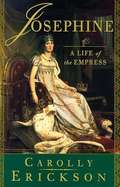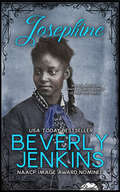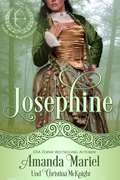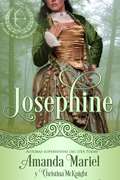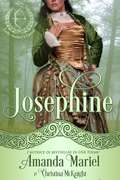- Table View
- List View
Joseph Addison: An Intellectual Biography
by Dan PostonThe name Joseph Addison was once synonymous with the finest of English prose. Eminent writers from Voltaire to Lord Macaulay to John Steinbeck considered him a consummate master to be studied and emulated. According to Benjamin Franklin, Addison’s writings "contributed more to the improvement of the minds of the British nation, and polishing their manner, than those of any other English pen whatever." While his influence lives on in the sound and style of English today, the fame of this literary role model has faded from popular awareness. The Addisonian spirit, which ushered in an exceptional era of domestic peace in Britain and provided inspiration for the French and American Revolutions, coded many of the constitutional, political, and social agreements we continue to live with today. This book, the first comprehensive monograph of Addison in half a century, considers Addison’s contribution through an in-depth exploration of his writings, political work, social life, and theatrical stagings.
Joseph Andrews (The Penguin English Library)
by Henry FieldingWith an essay by Mark Spilka.'Kissing, Joseph, is but a prologue to a Play. Can I believe a young fellow of your Age and Complexion will be content with Kissing?'Henry Fielding's riotous tale of innocents in a corrupt world was one of the earliest English novels, blending bawdy slapstick, philosophical musing and pointed social satire to create a work of moral complexity and generous, life-affirming humanity. Published in 1742, it tells the story of the chaste servant Joseph Andrews who, after being sacked for spurning the advances of the lascivious Lady Booby, takes to the road, accompanied by his beloved Fanny Goodwill and the absent-minded, much put-upon Parson Adams. There they encounter robbers, tricksters, seducers, mishaps and strange twists of fortune, in a series of adventures filled with exuberant comedy.The Penguin English Library - 100 editions of the best fiction in English, from the eighteenth century and the very first novels to the beginning of the First World War.
Joseph Banks and the British Museum: The World of Collecting, 1770-1830
by Neil ChambersConcentrating on the explorer and naturalist Joseph Banks (1743-1820), this book explores the early history of collections at the British Museum. Taking Banks' extraordinary career as its basis, it examines the changes that took place during a period of transition that led to collecting on an increasingly global scale.
Joseph Brant Museum: Inside Hamilton's Museums
by John GoddardInside Hamilton’s Museums helps to satisfy a growing curiosity about Canada’s steel capital as it evolves into a post-industrial city and cultural destination. In this special excerpt we visit Burlington's Joseph Brant Museum, which commemorates the Mohawk leader Thayendanegea, or Joseph Brant, who built his home on a site bordering modern-day Hamilton. John Goddard takes us on a detailed tour of the historic home, providing fascinating historical background and insight.
Joseph Butler: A Preacher for Eighteenth-Century Commercial Society
by Daisuke Arie Masatake Okubo Naoki YajimaThis book is the first English-language monograph about Bishop Joseph Butler (1692–1752) by Japanese scholars. It is an especially interesting and controversial message coming as it does from Japan, a well-developed secular economic state where less than 1% of the population are Christians and opposing the recent trend of curtailing the eighteenth-century political economy into religiosity and theology. This multidisciplinary edited book presents a different and new perspective from the recent work of Oslington et al., which seeks to reduce the political economy of eighteenth- and nineteenth-century Britain to religiosity and theology, triggered by the writings of A. M. C. Waterman. Unlike those works, the present one aims to re-examine the largely forgotten Butler, who was said in the nineteenth century to be the most influential cleric and preacher in the Church of England of the previous century— not just as a clerical ideologue, but mainly as a proto-political economistbefore Adam Smith.In order to achieve this goal, first, the authors clarify that Butler's theory of conscience and probability, which began with passion and selfishness, was created with the development of eighteenth-century commercial society in mind. Second, the manner in which Butler's discourse was directed not at anti-Anglicans or eminent intellectuals, but at the majority of ordinary secular society, is explored. How it was consistent with and defended their sentiments and economic behavior, not only in Analogy but mainly in Fifteen Sermons, is also investigated and explained. Finally, readers see that Butler's antirational grasp of humanity and empiricist epistemology, based on “probability” presented in these inquiries, can in fact be considered a pioneering expression of the methodological premises of modern economics.
Joseph Carens: Between Aliens and Citizens (Münster Lectures in Philosophy #6)
by Matthias Hoesch Nadine MoorenThis book offers a critical discussion of Joseph Carens’s main works in migration ethics covering themes such as migration, naturalization, citizenship, culture, religion and economic equality. The volume is published on the occasion of the annual Münster Lectures in Philosophy held by Joseph Carens in the fall of 2018. It documents the intellectual exchange with the well-known philosopher Joseph Carens by offering critical contributions on Carens’s work and commentaries of Carens as a reply to these critical contributions. With his various works on migration ethics, Joseph Carens must be seen as one of the leading academics in the political and ethical discourse of migration in the last years. The topic of migration raises questions not only regarding naturalization and citizenship but also cultural, economic and religious differences between aliens, citizens and persons whose status lies in between and calls for further determination. Such questions gain more and more importance in our globalized world as can be seen for example in the context of the refugee crisis in the European Union and the U.S. The book covers different systematic topics of Carens’s work as can be found in his widely read book “The Ethics of Immigration” but also in further publications. It provides papers with critical discussions of Carens’s work as well as his responses to these, thus enabling and documenting the fruitful dialogue between the contributors and Carens himself. The aim of this book is to sharpen and shed light on Carens’s arguments concerning migration by offering new and critical perspectives and fine-grained analyses.
Joseph Chamberlain: International Statesman, National Leader, Local Icon
by I. Cawood C. UptonWinston Churchill described Joseph Chamberlain as 'the man who made the weather' for twenty years in British politics between the 1880s and the 1900s. This volume contains contributions on every aspect of Chamberlain's career, including international and cultural perspectives hitherto ignored by his many biographers. It breaks his career into three aspects: his career as an international statesman, defender of British interests and champion of imperial federation; his role as a national leader, opposing Gladstone's crusade for Irish home rule by forming an alliance with the Conservatives, campaigning for social reform and finally advocating a protectionist economic policy to promote British business; and the aspect for which he is still celebrated in his adopted city, as the provider of sanitation, gas lighting, clean water and cultural achievement for Birmingham – a model of civic regeneration that still inspires modern politicians such as Michael Heseltine, Tristram Hunt and David Willetts.
Joseph Conrad
by Roger Osborne Paul Eggert Introduction by Keith Carabine Explanatory Notes by Jeremy Hawthorn Keith Carabine Roger Osborne Paul Eggert Introduction by Keith Carabine Explanatory Notes by Jeremy HawthornSet in the tumultuous political world of Tsarist repression and revolutionary intrigue in St Petersburg and Geneva, Under Western Eyes (1911) renders with searing intensity the psychological torment of its Russian protagonist, a university student who, in betraying another, has betrayed himself. Based upon a comparison of the existing manuscript and other materials, this scholarly and first extensively annotated edition of Joseph Conrad's great novel Under Western Eyes differs from all previous printings by more accurately reflecting Conrad's writing process. The reading text is supported by new scholarly materials that are the result of fifteen years of investigation: essays on the textual and biographical history of the novel, extensive notes, appendices and maps, as well as a full listing of the thousands of textual variants in the early forms of the novel, including the 18,000 words that Conrad himself deleted.
Joseph Conrad and Postcritique: Politics of Hope, Politics of Fear
by Joyce Wexler Jay ParkerThis book takes a postcritical perspective on Joseph Conrad’s central texts, including Heart of Darkness, The Secret Agent, Under Western Eyes, and Lord Jim. Whereas critique is a form of reading that prioritizes suspicion, unmasking, and demystifying, postcritique ascribes positive value to the knowledge, affect, ethics, and politics that emerge from literature. The essays in this collection recognize the dark elements in Conrad’s fiction—deceit, vanity, avarice, lust, cynicism, and cruelty—yet they perceive hopefulness as well. Conrad’s skepticism unveils the dark heart of politics, and his critical heritage can feed our fear that humanity is incapable of improving. This Conrad is a well-known figure, but there is another, neglected Conrad that this book aims to bring to light, one who delves into the politics of hope as well as the politics of fear.
Joseph Conrad, Cosmopolitanism and Transnationalism
by Robert HampsonIn 1908, Joseph Conrad was criticised by a reviewer for being a man ‘without either country or language’: even his shipboard communities were the product of a ‘cosmopolitan’ vision. This book takes off from that criticism and begins by exploring the history and meanings of the term ‘cosmopolitan’. It then considers the multinational world of Conrad’s ships – and of the Merchant Marine more generally – to differentiate multinationalism from cosmopolitanism. Subsequent chapters then address nationalism, nation-formation and the concept of the nation through a reading of Nostromo; cosmopolitanism and internationalism in The Secret Agent; nationalism, internationalism and transnational activism in relation to Under Westen Eyes; and Conrad’s own transnational activism in his later essays. While drawing distinctions between cosmopolitanism, internationalism and transnationalism as the appropriate conceptual framings for Conrad’s works, this book traces Conrad’s own engagement with nationalism, cosmopolitanism, and transnational activism in relation to the political events of his time.
Joseph II (Profiles In Power)
by T C BlanningJoseph II (1741--90) -- son and eventual successor of Maria Theresa -- has conventionally been seen in the context of the "Enlightened Despot'' reformers. Today's turmoil in his former territories invites a rather different perspective, however, as Joseph grapples with the familiar and intractable problems of creating a viable unitary state out of his multi-national empire in Central Europe. Professor Blanning's brilliant short study, based on extensive archival research, offers a history of the Habsburg monarchy in the eighteenth century, as well as a revaluation of the emperor's complex personality and his ill-fated reform programme.
Joseph Locke: Civil Engineer and Railway Builder, 1805–1860
by Anthony BurtonMost historians recognize the work of three engineers as being the men who developed the railways from slow, lumbering colliery lines into fast, inter-city routes. Two are very well known: Robert Stephenson and Isambard Kingdom Brunel. The third was Joseph Locke, who should be recognized for having made a contribution just as great as that of the other two.The Locke family had been colliery managers and overseers for many generations and Joseph, once he had completed his very rudimentary education at Barnsley Grammar School at the age of thirteen, seemed set to follow in their footsteps. However, at the age of nineteen he was taken on as an apprentice by an old friend of his father, George Stephenson, and sent to the new locomotive works at Newcastle. His enthusiasm and willingness to learn soon brought promotion, and he became a highly valued assistant engineer on the prestigious Liverpool & Manchester Railway.During his time there he wrote a pamphlet with Robert Stephenson, arguing the case for steam locomotives and had the embarrassing task of having to correct calculations for a tunnel being built under the direct supervision of George Stephenson. After its opening, he moved on to work on the Grand Junction Railway, at the start working alongside Stephenson rather than as his assistant. But before long, they had quarrelled and the directors handed the whole works over to Lockes control. It was the turning point of his life.Locke was to continue as chief engineer on some of the most important lines in Britain, and his reputation grew to the point where he was also in demand for work in mainland Europe, building major routes in France, the Netherlands and Spain. He became a wealthy man, purchasing the manor of Honiton in Devon and sat in Parliament as the Liberal member for that constituency. He received many honors during his lifetime and died while on holiday at Scotland in 1860 at the age of fifty-five.
Joseph P. Kennedy Presents: His Hollywood Years
by Cari BeauchampJoseph P. Kennedy's reputation as a savvy businessman, diplomat, and sly political patriarch is well-documented. But his years as a Hollywood mogul have never been fully explored until now. In Joseph P. Kennedy Presents, Cari Beauchamp brilliantly explores this unknown chapter in Kennedy's biography. Between 1926 and 1930, Kennedy positioned himself as a major Hollywood player. In two short years, he was running three studios simultaneously and then, in a bold move, he merged his studios with David Sarnoff to form the legendary RKO Studio. Beauchamp also tells the story of Kennedy's affair with Gloria Swanson; how he masterminded the mergers that created the blueprint for contemporary Hollywood; and made the fortune that became the foundation of his empire.
Joseph Roberts Smallwood: Masthead Newfoundlander, 1900-1949
by Melvin Baker Peter NearyNo other figure, historical or political, features more prominently in recent Newfoundland history than Joey Smallwood. During his long career in Newfoundland politics, Smallwood used the literary, rhetorical, and theatrical skills honed in the first five decades of his life to create a distinct and celebrated persona. He told his own story in his lively autobiography, I Chose Canada, published in 1973 only a year after he left office.Talented, venturesome, and above all resilient, he was no ordinary Joe. Smallwood was born in Gambo, Bonavista Bay, but grew up in St John's. Leaving school at fifteen, he quickly established himself as a journalist and as a publicist for Sir William Coaker's Fishermen's Protective Union. In the early 1920s Smallwood sojourned twice in New York, where he planned a Newfoundland labour party. Ambition, however, led him to support the Liberal Party of Sir Richard Squires. Defeated as a candidate in the general election of June 1932, he next promoted producer and consumer cooperatives, but with mixed results. In 1937 he edited The Book of Newfoundland and thereafter enjoyed great success on the radio as "The Barrelman." The book culminates with Smallwood's adoption of the cause of Confederation and his swearing in on 1 April 1949 as premier of the new Province of Newfoundland.There are multiple J.R. Smallwoods, but the aspiring and ambitious figure presented in this biography stands apart. Melvin Baker and Peter Neary use the largely untapped sources of Smallwood's own papers and his extensive journalistic writing to add a documentary basis to what is known or conjectured about the first five decades of Smallwood's remarkable life, both public and private.
Joseph Rowntree
by Chris TitleyThe Rowntree name is linked to some of the most iconic and well-loved brands of the 20th century, including the KitKat, Aero and Fruit Pastilles. On the way he transformed a small factory in York into a global business. But there is much more to the Joseph Rowntree story than chocolate. A prominent Quaker, social reformer, political campaigner and educationalist, he reshaped his home city and improved the welfare of generations of workers. Rather than diminish with his death in 1925, Rowntreeís legacy has grown as the charitable trusts he founded become ever-more influential. This fascinating biography traces Joseph Rowntreeís life from grocerís son to great Victorian philanthropist and beyond.
Joseph Smith: Rough Stone Rolling
by Richard Lyman BushmanJoseph Smith, America's preeminent visionary and prophet, rose from a modest background to found the largest indigenous Christian church in American history. Without the benefit of wealth, education, or social position, he published the 584-page Book of Mormon when he was twenty-three; organized a church when he was twenty-four; and founded cities, built temples, and attracted thousands of followers before his violent death at age thirty-eight. Rather than perishing with him, Mormonism migrated to the Rocky Mountains, flourished there, and now claims millions of followers worldwide. In Joseph Smith: Rough Stone Rolling, Richard Bushman, an esteemed American cultural historian and a practicing Mormon, tells how Smith formed a new religion from the ground up. Moving beyond the popular stereotype of Smith as a colorful fraud, the book explores the inner workings of his personality-his personal piety, his temper, his affection for family and friends, and his incredible determination. It describes how he received revelations and why his followers believed them. Smith was a builder of cities. He sought to form egalitarian, just, and open communities under God and laid out a plan for ideal cities, which he hoped would fill the world. Adopted as the model for hundreds of Mormon settlements in the West, Smith's urban vision may have left a more lasting imprint on the landscape than that of any other American. He was controversial from his earliest years. His followers honored him as a man who spoke for God and restored biblical religion. His enemies maligned him as a dangerous religious fanatic, an American Mohammad, and drove the Mormons from every place in which they settled. Smith's ultimate assassination by an armed mob raises the question of whether American democracy can tolerate visionaries. The book gives more attention to Joseph Smith's innovative religious thought than any previous biography. As Bushman writes, "His followers derived their energy and purpose from the religious world he brought into being. " Some of the teachings were controversial, such as property redistribution and plural marriage, but Smith's revelations also delved into cosmology and the history of God. They spoke of the origins of the human personality and the purpose of life. While thoroughly Christian, Smith radically reconceived the relationship between humans and God. The book evaluates the Mormon prophet's bold contributions to Christian theology and situates him culturally in the modern world. Published on the two hundredth anniversary of Smith's birth, Joseph Smith: Rough Stone Rolling is an in-depth portrayal of the mysterious figure behind one of the world's fastest growing faiths. From the Hardcover edition.
Joseph Smith
by Robert V. ReminiRobert Remini's work on the Jacksonian epoch has won him acclaim as well as the National Book Award. In Joseph Smith, he employs his keen insight and rich storytelling gift to explore one of the period's major figures. The most important reformer and innovator in American religious history, Joseph Smith has remained a fascinating enigma to many both inside and outside the Mormon Church he founded.<P> Born in 1805, Smith grew up during the "Second Great Awakening," when secular tumult had spawned radical religious fervor and countless new sects. His contemplative nature and soaring imagination--the first of his many visions occurred at the age of fourteen--were nurtured in the close, loving family created by his deeply devout parents. His need to lead and be recognized was met by his mission as God's vehicle for a new faith and by the hundreds who, magnetized by his charm and charismatic preaching, gave rise to the Mormon Church. Remini brings Smith into unprecedented focus and contextualizes his enduring contribution to American life and culture within the distinctive characteristics of an extraordinary age.
Joseph Stalin: Dictator of the Soviet Union
by Brenda HaugenA biography profiling the life of Joseph Stalin, dictator of the Soviet Union from 1928 to 1953. Includes source notes and timeline.
Joseph Stalin: Images Of War (Images of War)
by David A. SemeraroJoseph Stalin was a monster. He sacrificed his friends and allies in pursuit of power, murdered thousands with sadistic brutality to maintain it and callously obliterated millions more of his own people over a quarter century of his leadership. Yet almost as frightening as the horrendous crimes he committed is the idolatry that allowed this ogre to flourish. Just like fellow monster of the twentieth century Adolf Hitler, Stalin saw himself as a master of destiny, a role that to him excused the vilest atrocities. And, bafflingly, just like his Nazi counterpart, he was allowed to dominate his nation and overrun others with the enthusiastic support of the majority of the citizens whom he had subjugated. Stalin was lauded as a national savior right up until his death, which was marked by mourning crowds so vast that untold numbers perished in the crush. This unquestioning adulation is not only a mystery to todays historians but a cause for alarm. For, under the Soviet Unions present regime, there are signs that the Stalin cult is being resurrected as the Russian bear again sharpens its claws. This concise book presents a cautionary study, in words and historic photographs, of the peasants son from Georgia who as a choirboy seemed destined for the priesthood but who grew up to be a street-fighting revolutionary using torture and terror as tools to attain power. It asks how the coarse, brutish drunkard that he became could nevertheless have been lauded abroad as a cultural giant and spellbind so many millions at home as an object of worship. It provides clues as to how Stalin the military incompetent came to be seen as a statesman of equal standing to war leaders like Churchill and Hitler (whose lives are covered by companion volumes in the Pen & Sword Images of War series). And it points to the danger of rewriting history to allow the resurrection of Stalin as a father of his people in the twenty-first century rather than a bloodstained idol with feet of clay.Also Available by Nigel Blundell, from the Images of War series, Images of War Winston Churchill and Images of War Adolf Hitler.
Josephine (Lady Archer's Creed Ser.)
by Éli Assunção Amanda MarielLady Josephine Watkins nunca planejou atirar no Duque de Constantan. Guiada pela culpa e determinada a vê-lo em plena saúde, ela se recusou a sair do lado dele. O que não imaginava era que o malicioso duque capturaria o seu coração. Devon Mowbray, Duque de Constantan, foi à Favershame Abbey por pura curiosidade. Ele só pretendia dar uma olhada no conde conhecido como a fera de Favershame, e ir embora. Nunca imaginou que uma bela e obstinada mulher fosse acertá-lo com uma flecha e roubar o seu coração. Apesar da mágica entre eles, um delicado segredo forçou Devon a afastar Josie. Mas sem ele saber, ela já tinha descoberto a verdade e ficou ainda mais determinada a conquistar o seu coração. Será que o amor será forte o bastante para resistir ao que ameaça mantê-los separados?
Josephine: A Life of the Empress
by Carolly Erickson"Born a creole in Martinique, sent to France in her teens to marry a distant relative in order to salvage the family fortunes, Josephine was adventurous, ambitious and above all hardy - a survivor in a hazardous time. Soon separated from her dissolute, spiteful husband, she made her way in the salons of Paris, a member of the shadow-world on the margins of respectability." "Confined to the worst prison in Paris during the murderous days of the French Revolution, condemned to death, she miraculously escaped her fate and went on to marry the rising star of the Directory, Napoleon Bonaparte - the man who in a few short years, with Josephine at his side, became Emperor of the French." "But the partnership between them was flawed, for by the time Josephine met Bonaparte she had become accustomed to associating romantic liaisons with profit, and not with tenderness. Bonaparte, at first besotted with his wife, soon became her tormentor, and she sought escape and romance with the love of her life, an obscure officer named Hippolyte Charles." "Carolly Erickson brings the complex, charming, ever resilient Josephine to life in this memorable portrait, one that carries the reader along every twist and turn of the empress's often thorny path, from the sensual richness of her childhood in the tropics to her final lonely days at Malmaison." --BOOK JACKET. Title Summary field provided by Blackwell North America, Inc. All Rights Reserved
Josephine (Avon True Romance Series)
by Beverly JenkinsJosephine ‘Jojo’ Best has it all figured out. Just seventeen, she's been to college, she has her own hairdressing shop and nothing will distract her from her goals. That is, until handsome George Brooks begins to pursue her. Then the return of her childhood nemesis complicates her life even further! <P><P>No girl is immune to Adam Morgan’s charm. But when a wound brings him home from the War Between the States, it’s a girl he used to call “Pest” who’s turning the tables. All grown up, Jojo is being courted by another soldier, and Adam knows it would be foolish to play with her heart; but he just can’t get the ugly duckling turned swan off his mind. <P><P>Jojo, too, can't deny her growing feelings for Adam. But he's always been such a flirt—how can she take him seriously? He can't possibly be serious about her. Besides, she has George falling all over himself to please her. As the war rages on, Adam's feelings for Jojo grow stronger, but Jojo's determination to resist him does, too. One thing is clear, though: Jojo is a girl who always gets what she wants, even when she doesn’t know what it is!
Josephine
by Amanda MarielLady Josephine Watkins hatte den Herzog von Constantan nicht mit ihrem Pfeil treffen wollen. Getrieben von Schuldgefühlen und dem Verlangen, ihn wieder gesunden zu sehen, weigert sie sich, von seiner Seite zu weichen. Niemals hätte sie gedacht, dass der verwegene Herzog ihr Herz stehlen würde. Devon Mowbray, Herzog von Constantan, trieb die Neugier nach Faversham Abbey. Er hatte nur den Earl, besser bekannt als das Biest von Faversham, kennenlernen und danach sofort wieder abreisen wollen. Niemals hätte er ahnen können, dass ihn eine sture Schönheit mit einem Pfeil durchbohren und dabei noch sein Herz stehlen würde. Doch trotz der Magie, die zwischen ihnen beiden herrscht, treibt ein gefährliches Geheimnis Devon dazu, Josie wegzustoßen. Doch ohne sein Wissen hat sie bereits sein Geheimnis erkannt und ist entschlossener denn je, sein Herz zu erobern. Ist ihre Liebe stark genug, um dem Paroli bieten zu können, das sie trennen will? Eine romantische historische Liebesgeschichte in der viktorianischen Zeit, in der eine Bogenschützin unbeabsichtigte Amor spielt.
Josephine
by Melissa Maia Moscoso Amanda MarielLady Josephine Watkins nunca tuvo la intención de dispararle al duque de Constantan. Impulsada por la culpa y determinada a verlo bien, ella se niega a dejar su lado. No podía haber adivinado que el duque diabólico capturaría su corazón. Devon Mowbray, duque de Constantan, llegó a Favershame Abbey por curiosidad. Solo había planeado conocer al conde conocido como la bestia de Favershame, y luego seguir su camino. Él nunca pensó que la bella con temperamento fuerte lo dispararía con su flecha y le robara el corazón en el proceso. A pesar de la magia que quema entre ellos, un secreto peligroso no deja a Devon otra opción más que alejar a Josie. Desconocido para él, ella ya ha descifrado la verdad y se ha vuelto más determinada que nunca a tener su corazón. ¿Su amor es lo suficientemente fuerte como para resistir lo que amenaza mantenerlos separados?
Josephine (Lady Archer's Creed Ser.)
by Ilaria Grandi Myeditor Amanda MarielLady Josephine Watkins non intendeva ferire il duca di Costantan. Spinta dal senso di colpa e determinata a vederlo guarire, si rifiuta di allontanarsi da lui. Ma non ha messo in conto che l'affascinante duca le avrebbe rubato il cuore. Devon Mowbray, duca di Costantan, è in visita a Favershame Abbey per curiosità. Aveva pianificato di incontrare il conte, conosciuto come la "bestia di Favershame", per poi far ritorno a casa. Non avrebbe mai immaginato di essere trafitto da una freccia per mano di una donna bellissima, né che le avrebbe donato il cuore. Nonostante la magia che li tiene avvinti, un pericoloso segreto non lascia a Devon altra scelta che respingere Josie. All'insaputa di lui, lei scoprirà la verità e sarà più determinata che mai ad avere il suo amore. Il loro amore sarà abbastanza forte da resistere a ciò che minaccia di tenerli separati?
